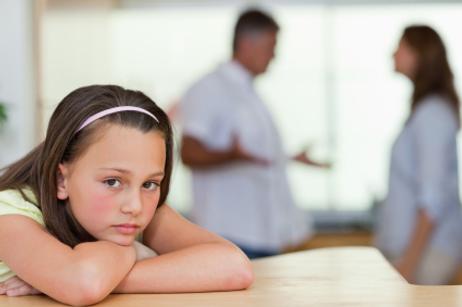Children are often caught in the crossfire of a divorce, and separation results can wreak havoc on a child’s academic performance and behavior at school. In fact, as Planet Divorce and Parenting Wizards' expert counselor asserts, “Children exposed to divorce are twice as likely to repeat a grade and five times likelier to be expelled or suspended from school.”
Researchers have found that many children experience behavioral changes in the immediate months after a divorce. Subsequently, divorcing parents can help their children maintain their performance in public schools by understanding these issues.
This video explains how divorce impacts children's mental health.
What Happens to Children after a Divorce
In the months following a divorce, children tend to demonstrate more disobedient, less affectionate, and more demanding behaviors. As children carry their personal problems from home into their school atmosphere, some of the changes seen in their school behavior include:
- Withdrawal
- Dependency
- Inattention
- Unhappiness
- Reduced work ethic and effort
- Increased acts of violence
- Physical boundary problems
Due to the dramatic upheaval in a child’s environment, divorce can impact students in an array of grade levels and at various ages.
Preventing Long-Term Problems: Public School Resources for Family Support
Studies show that over half of the reported divorces in the United States involve children and/or teens. Subsequently, Early School Years argues, “It is important to remember that divorce does affect children, and it’s up to parents and other significant adults, such as teachers, to help children come to terms with the changes divorce brings.”
Parents can utilize the support from their child's public school leaders to create a proactive plan for their child's specific needs. Experts commonly suggest that parents keep close contact with their child's teachers. Considering that teachers can observe their students in a more interactive venue than a parent may notice at home, a child’s educator may be able to provide insight into any behavioral or academic changes.
Expounding on communication strategies, the early school years' educational experts further assert that clear interaction among schools and families will help parents become more aware of their child’s emotional responses that manifest in school. Although perhaps most commonly evident through a child’s gradual decline in grades, other subtle observations and behavioral changes “Can signify that a child is having difficulty coping with the breakdown of a parent’s marriage. For this reason, communication between school and home is vital.”
As you stay in close communication with your child's teachers, you may, unfortunately, learn that your child is demonstrating problematic behavioral or academic changes in the classroom. Often, school experts suggest or encourage psycho-educational testing, which a school psychologist can conduct upon a parent's request. With the results of these tests, educators can pinpoint the child's struggles and formulate an action plan. Simultaneously, parents can dialogue with teachers and school counselors to ensure their child’s needs and concerns are being addressed.
Outside the public school setting, parents can continue to foster their child’s emotional adjustment through routines at home. Consistency is critical for helping children feel the stability they need to thrive. As the Great Schools experts reveal, having both divorced parents agree to adhere to the same afterschool routine can provide their child with a greater sense of security and foundation. Ideally, divorced parents can enforce the same rules about homework, playtime, and bedtime.
By staying in close contact with your child’s teacher and creating a consistent routine in both households, your child can better adjust to the tumultuous changes that every divorce brings.
Questions? Contact us on Facebook. @publicschoolreview











